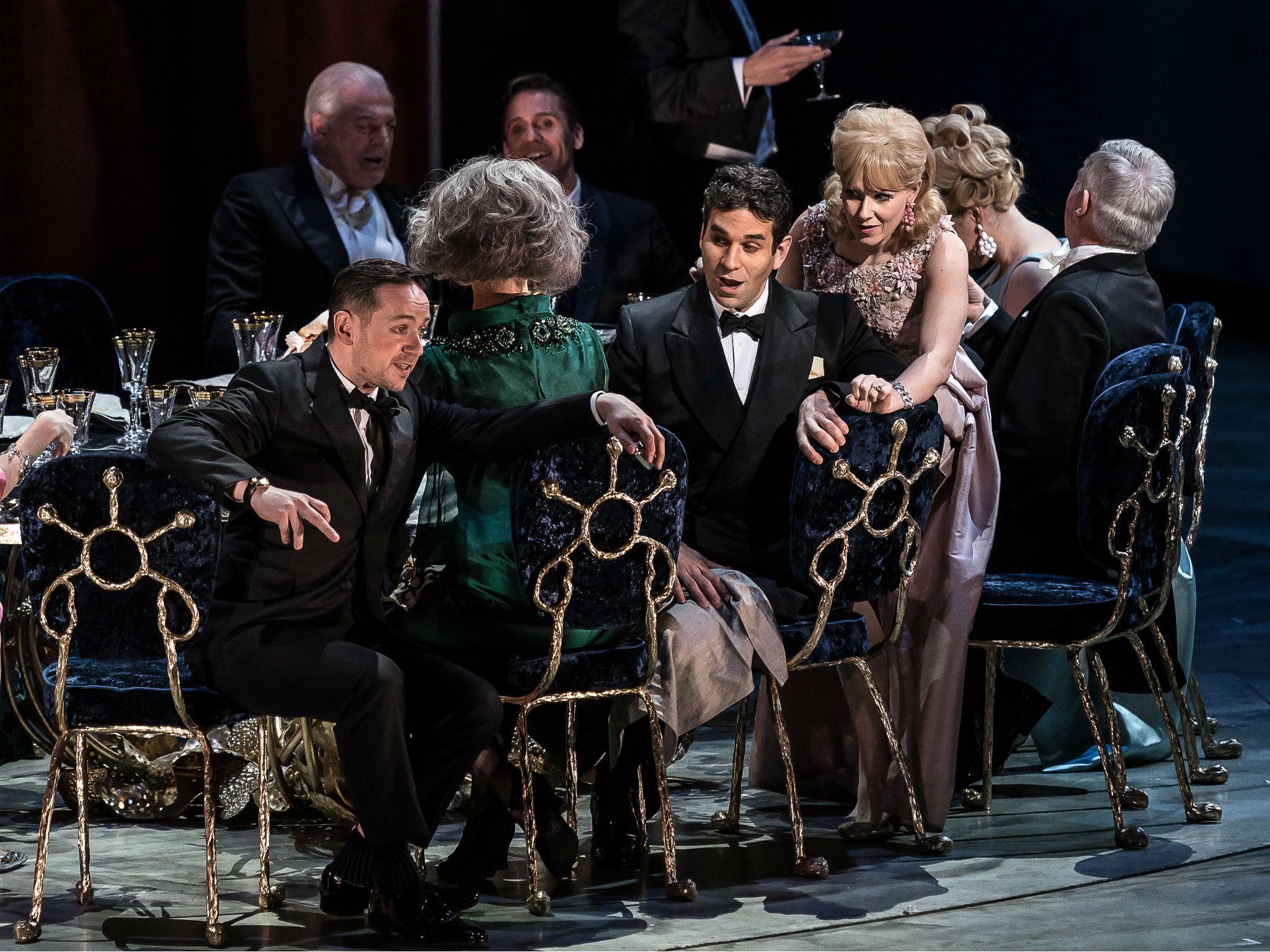The Exterminating Angel, Royal Opera House, London, review: Part existential nightmare, part Lord of the Flies, it robustly resists formal analysis
Thomas Adès conducts the UK premiere of his opera which is inspired by Luis Buñuel’s 1962 film of the same name

Your support helps us to tell the story
From reproductive rights to climate change to Big Tech, The Independent is on the ground when the story is developing. Whether it's investigating the financials of Elon Musk's pro-Trump PAC or producing our latest documentary, 'The A Word', which shines a light on the American women fighting for reproductive rights, we know how important it is to parse out the facts from the messaging.
At such a critical moment in US history, we need reporters on the ground. Your donation allows us to keep sending journalists to speak to both sides of the story.
The Independent is trusted by Americans across the entire political spectrum. And unlike many other quality news outlets, we choose not to lock Americans out of our reporting and analysis with paywalls. We believe quality journalism should be available to everyone, paid for by those who can afford it.
Your support makes all the difference.And so to the UK premiere of Adès’s third opera: a slice of surrealist noir based on Buñuel’s 1962 film The Exterminating Angel, where a group of well-heeled dinner-party guests find themselves mysteriously unable to leave, and over the ensuing days social order breaks down. Part existential nightmare, part Lord of the Flies, it robustly resists formal analysis.
Tom Cairns, librettist and director of Adès’s second opera The Tempest, performs the same duties here, ingeniously depicting Sixties luxury sliding into shadowy delirium. The production (Adès conducting) boasts an array of top-flight singers, any one of whom would be a draw in their own right: John Tomlinson bringing his comic touch to Doctor Conde; Sophie Bevan beautifully duetting as a young bride, Iestyn Davies characterful and compelling as ever, with virtuoso American soprano Audrey Luna glittering up in her other-worldly stratosphere.
Adès’s knowing score is as happy to contemplate a beautiful requiem as mixing in flamenco, equally inclined to use drumming to make a militaristic point as enjoy its cycles. New here is his fascination with bells (as repeating reminders of eternity in the river of time), and use of the eerie ondes martenot (associated with the exterminating angel – though whatever that might be is never made explicit). It can sometimes feel like Adès is playing with puzzles and drilling down so deep into the nature of his musical material that a first-time listener can’t follow, but it is without doubt one heck of a ride.
Join our commenting forum
Join thought-provoking conversations, follow other Independent readers and see their replies
Comments